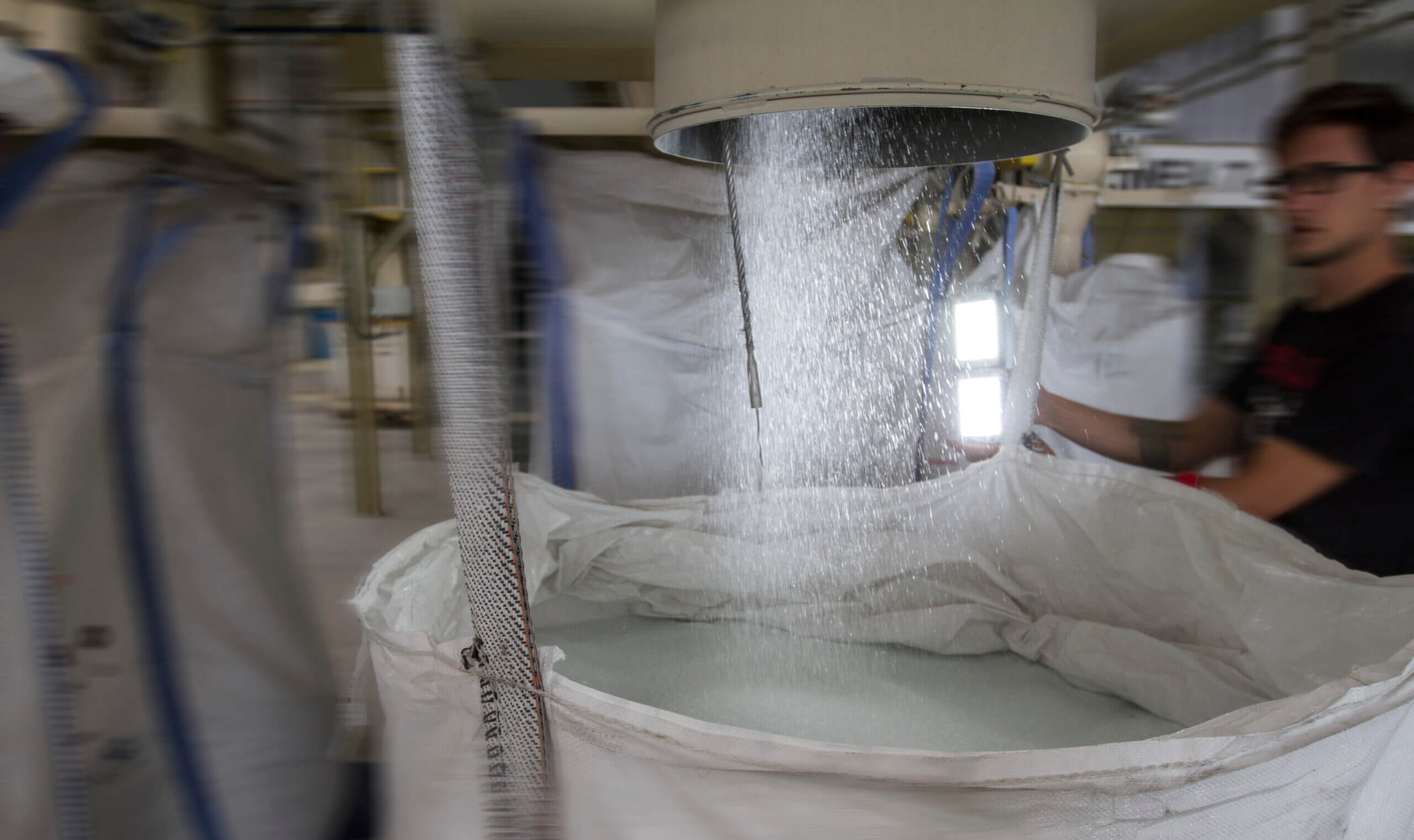A pure filter media for pure water
In the global market there is a great variety of filter glasses, but we can establish two main groups based on their origin. In both cases they come from glass recycling, but from totally different and differentiated circuits.
On the one hand we find the urban recycling circuit, that is to say, the street containers where glass is recovered from bottles and jars, but where other elements based on metal, ceramic, plastic, cork, etc. are usually placed. Due to the lack of control at this source, it is common to find the presence of bacteria and undesirable elements which, if not correctly sterilized, will migrate to our pool water due to the dragging effect of the water traveling through the filter at high pressure. The disadvantage that these washing processes present, when they exist, is twofold: the increase in price of the product due to the inclusion of these processes – which forces the sale price to rise to compensate for this process – and a negative environmental footprint caused by the use of energy and water to reach the necessary levels of disinfection of the glass in this category. For this reason, glass from this group tends to give off a characteristic smell when the container is opened, and we often find paper, plastic and other unwanted materials (between 3% and 5%) in it, which will inevitably end up in the water in our facility.
On the other hand, there is a circuit linked to the use of remains of industrial glass, that is to say, scraps and leftovers used mainly for the manufacture of windows. This glass has never been in contact with contaminants and we can consider it virgin, since it goes through few stages until it ends up becoming high quality filtering glass. In this case, it is totally controlled and traceable thanks to the monitoring of the batches used, and it is not necessary to sterilize it or subject it to additional washing processes as it is already clean. A guarantee of hygiene that is as simple as it is effective and environmentally friendly.
At Nature Works we have been defending this type of circuit for 10 years, a notably more sustainable and hygienic option, which has allowed us to focus our efforts and resources on perfecting the performance and technology applied to filter glass.
We have conducted years of research and development with our own technical and human team. This, together with the technology called Anti-Compaction and the guarantee of pure origin that we can only achieve thanks to the industrial circuit, results in the real evolution of filtering glass.





